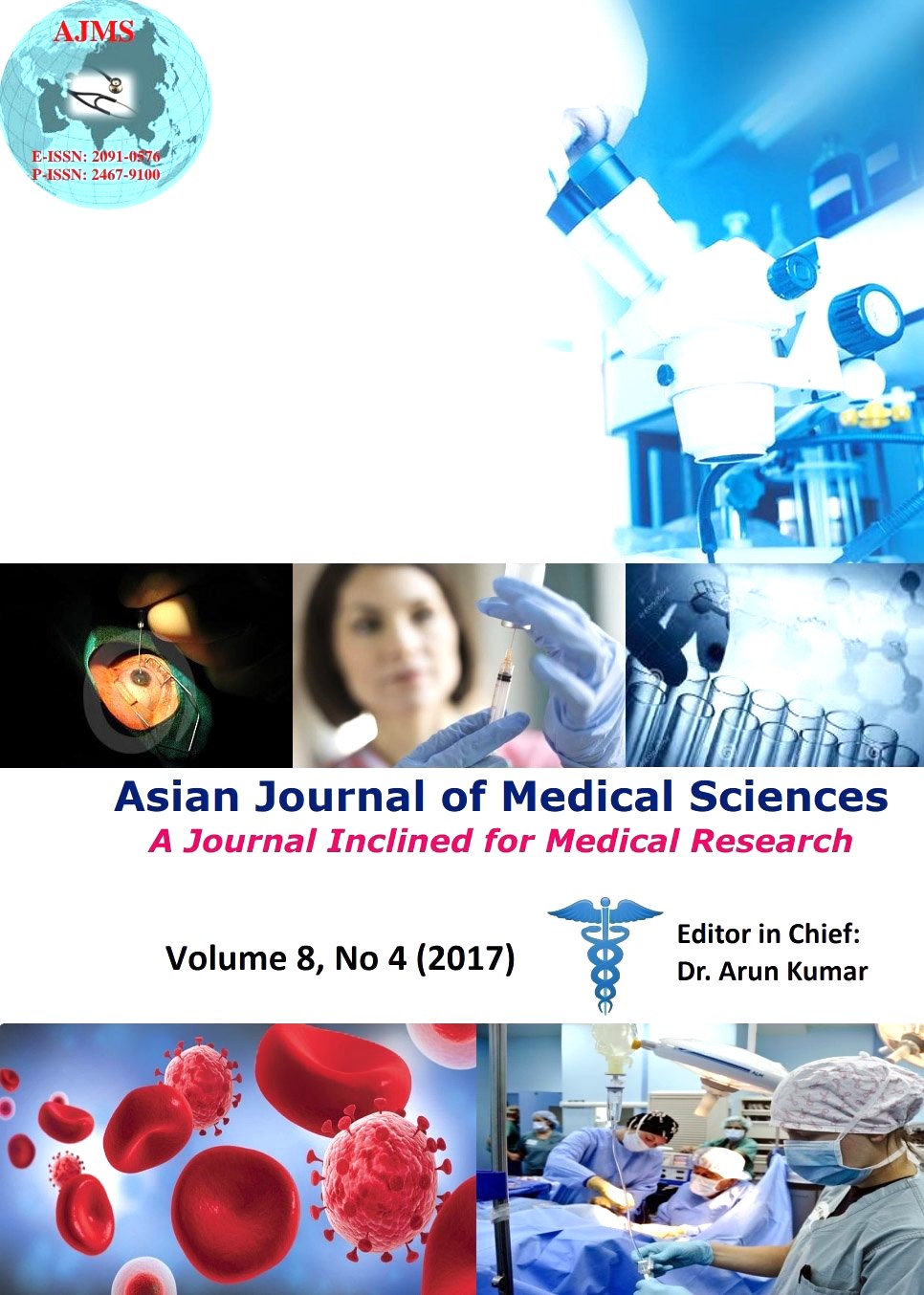A study assessing the post operative outcome in patients of acoustic schwannoma operated through retrosigmoid approach at tertiary care institutions- An experience of one year
Keywords:
Acoustic schwannoma, Retrosigmoid approach, Venticulo-peritoneal shuntAbstract
Background: The most common tumors of the cerebellopontine angle (CPA) is Acoustic schwannoma (80–90%). Cerebellopontine Angle tumors may be asymptomatic or may present with symptoms which could be due to tumor mass or due to raised intracranial pressure (ICP). The Suboccipital retrosigmoid approach has become an increasingly popular method of excising CPA tumors.
Aims and Objectives: To assess the post operative outcome and incidence of post operative complications in patients operated for CPA tumor through retrosigmoid approach.
Materials and Methods: The present “Prospective study” was carried out in 10 patients admitted to the Department Of Neurosurgery, NRSMCH, Kolkata with a clinicoradiological diagnosis of CPA tumor and were operated between Feruary 2016 to March 2017.
Results: The maximum number of cases i.e 38.46%(n=5) were of 31 to 40 years of age. The male to female ratio was 0.3:1.The most common symptom were ipsilateral sensorineural hearing loss (SNHL) and tinnitus, headache associated with papilloedema. The gross total resection was done in 84.61% cases & subtotal done in 15.38% cases.CSF leakage was present in 23.07 % cases. Facial Nerve function of grade 1 was present in 53.84%. Out of all cases Grade 2 and grade 5 function was present in 1 patient. Grade 3& Grade 4 dysfunction were present in 2 patients. Transient lower cranial nerve paresis was present in 46.15%.One patient expired in postoperatively.
Conclusion: Ventriculo-peritoneal shunting followed by excision of tumor by retrosigmoid approach can bring good neurological outcome in patients with CPA tumors.
Asian Journal of Medical Sciences Vol.8(4) 2017 44-49
Downloads
Downloads
Published
How to Cite
Issue
Section
License
Authors who publish with this journal agree to the following terms:
- The journal holds copyright and publishes the work under a Creative Commons CC-BY-NC license that permits use, distribution and reprduction in any medium, provided the original work is properly cited and is not used for commercial purposes. The journal should be recognised as the original publisher of this work.
- Authors are able to enter into separate, additional contractual arrangements for the non-exclusive distribution of the journal's published version of the work (e.g., post it to an institutional repository or publish it in a book), with an acknowledgement of its initial publication in this journal.
- Authors are permitted and encouraged to post their work online (e.g., in institutional repositories or on their website) prior to and during the submission process, as it can lead to productive exchanges, as well as earlier and greater citation of published work (See The Effect of Open Access).




